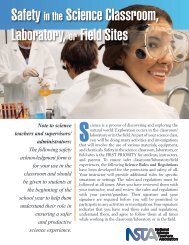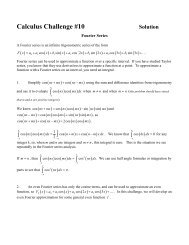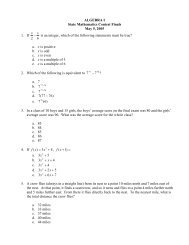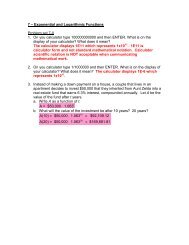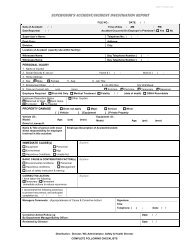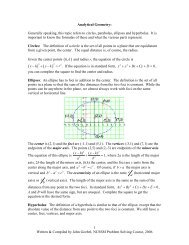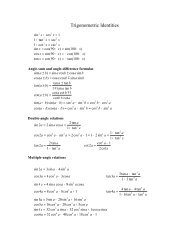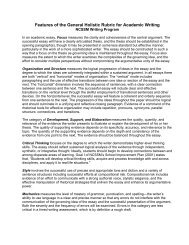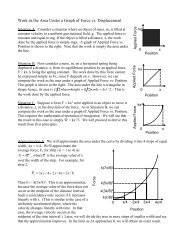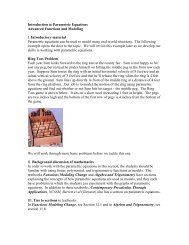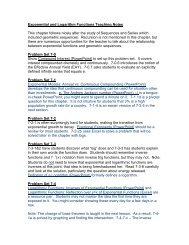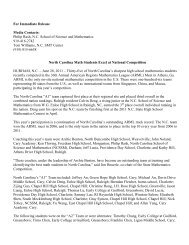NCSSM COURSE CAtAlOG - North Carolina School of Science and ...
NCSSM COURSE CAtAlOG - North Carolina School of Science and ...
NCSSM COURSE CAtAlOG - North Carolina School of Science and ...
Create successful ePaper yourself
Turn your PDF publications into a flip-book with our unique Google optimized e-Paper software.
BI358 Classical Genetics<br />
One trimester<br />
Credit: One unit core biology or core elective credit.<br />
Corequisite: MA305 Precalculus <strong>and</strong> Modeling.<br />
Meeting pattern: Four periods per week including lab.<br />
This course begins with the fundamentals <strong>of</strong> cell division <strong>and</strong> focuses on modes<br />
<strong>of</strong> inheritance <strong>of</strong> traits, beginning with Mendel’s pea plants <strong>and</strong> stressing<br />
extensions <strong>and</strong> exceptions to Mendel’s principles. Laboratory activities,<br />
problem-solving, <strong>and</strong> critical thinking skills are emphasized.<br />
BI360 Molecular Genetics<br />
One trimester<br />
Credit: One unit core biology or core elective credit.<br />
Corequisite: MA305 Precalculus <strong>and</strong> Modeling.<br />
Meeting pattern: Five periods per week including lab.<br />
This course focuses on DNA. Beginning with Watson <strong>and</strong> Crick’s double-helix<br />
model the course focuses on DNA structure, replication, transcription <strong>and</strong><br />
translation. Current topics in DNA technology, gene cloning <strong>and</strong> bioinformatics<br />
are discussed. Critical thinking skills <strong>and</strong> thoughtful data interpretation are<br />
stressed.<br />
BI364 Developmental Biology<br />
One trimester<br />
Credit: One unit core biology or core elective credit.<br />
Meeting pattern: Four periods per week including lab.<br />
Building a viable multicellular organism from a single fertilized egg involves the<br />
coordination <strong>of</strong> many biological processes. This course studies the molecular<br />
<strong>and</strong> genetic mechanisms involved in embryogenesis with an emphasis on the<br />
processes that establish axis orientation <strong>of</strong> an embryo, specify the fate <strong>of</strong> stem<br />
cells, <strong>and</strong> regulate the formation <strong>of</strong> organ systems. Inherent in the field <strong>of</strong><br />
developmental biology is the comparison <strong>of</strong> these processes across a variety <strong>of</strong><br />
species in their evolutionary context. This course focuses on applying modern<br />
<strong>and</strong> canonical laboratory techniques using live animal models. Students who<br />
have completed this course qualify for BI416 Anatomy <strong>and</strong> Physiology II, but it is<br />
also possible to take this course following BI416, if the student wishes.<br />
63



